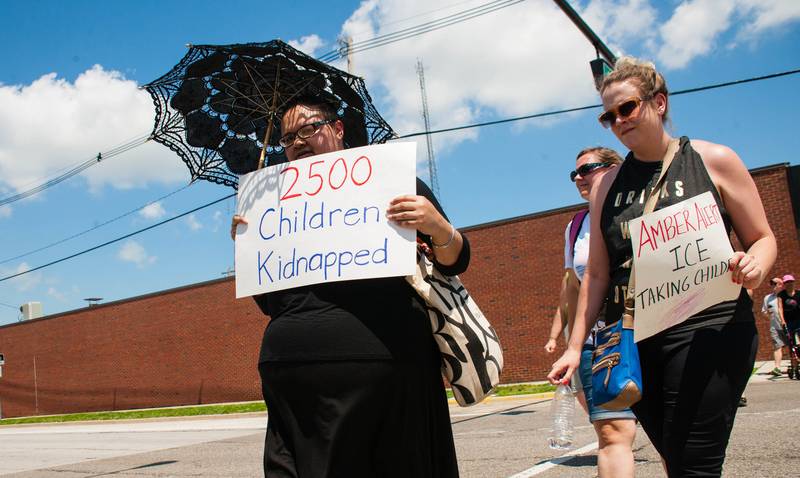The busyness of daily life — work, family caretaking, errands, housework, meetings, commitments — can provide brief respite from it, but inevitably, one’s attention turns to national affairs. In recent days, the nation has been struggling mightily over President Trump’s Zero Tolerance policy at the border, and his reversal of this policy. And yet, one of the most challenging questions I have had came from my six-year-old who reminded me of how intensely these national events invade our homes and the hearts of even our youngest family members.
In the past week, my daughter recently earned her orange belt in martial arts, so my husband and her maternal and paternal grandparents went out to celebrate this family milestone. My daughter specializes in wiggling, squirming, and hopping in laps to prolong bedtime rituals, often with the nighttime news on low gurgle in the background.
However, that night, the volume was up and she saw pictures of detained children and parents in various detention centers. My daughter, who had been bubbling with pride about her new belt rank, spun around kneeling and grabbed me with both hands and asked with worried eyes:
“Mama will I be taken?”
I froze in that moment and the room fell silent as no one responded. It felt like time stood still as I stared at her.
“Mama will I be taken?”
This is her latest query on the heels of others she has posed in the last year:
“Mama, do I have to go to school? I don’t want to die in the hallway of my school. I’m not ready to die.”
Or
“Mama, will the police kill me?”
Parenting in America is challenging.
Parenting children of color even more demanding.
And parenting African-American children gets more nerve-wracking every day.
Now, in addition to having to explain police involved shootings, public chokings, black folks being handcuffed and escorted out of public venues, mass shootings, and the weekly array of local shootings across Central Illinois, I have to explain why immigrant families are being arrested, separated and having their children dispersed across the United States?
So, of course I found my footing and cobbled together some explanation about folks leaving their countries under duress, coming to America “illegally” and being detained until the matter can be sorted out within our legal system. Yes, of course, the matter is far more complicated, but bedtime loomed and I had to decide on the degree of difficulty needed for a six-year-old to process.
Consequently, she returned to thoughts of summer camp, packing her lunch box and making critical decisions about pajamas (i.e., would unicorns or mermaids win out?) Okay, I thought, crisis averted.
However, the next night, as my daughter and I snuggled under the covers to watch one of her favorite episodes of the Berenstain Bears, I reminded her that it was nearing bed time. She grabbed my hand and said “Mommy, hold my hand.” I said, “Okay, but it’s almost bedtime.” She said, “Mommy, we can never, never, never, never ever be separated. You know, like the news.” I said hastily, “Okay, okay. Never ever. Now, it’s time for bed.”
She would not let my hand go.
It was only when I heard the sounds of heavy breathing and a weakened grasp that I dared to remove my hand from hers.
The rest of that night I spend waking up to check on her periodically, to ease her night time congestion, to slather decongestant under her nose, all the while thinking about her concerns:
“Mama, will I be taken?”
“Mama, can never, never, never, never ever be separated. You know, like the news.”
As a descendent of enslaved Africans, this border crisis has conjured up past conversations with my own parents about the American past. As a child, I remember having many conversations about slavery with my dad that would often end with the same conclusion:
“When you keep your foot on someone else’s neck, you can’t move either.”
This was always meant to remind me that the slaver and the enslaved were trapped in this horrible relationship where enslaving others requires your own bondage to police and surveil the enslaved.
And so, with this migrant crisis on our southern border, my daughter has reminded me that the terrors of separation, displacement, uncertainty, deportation, renewed violence, and the financial costs of such processes on migrant families is indeed rippling through our own families, communities, our very homes as well.
Though not nearly as viscerally as the actual migrant families, our children are internalizing yet another fear of the terror that we as a nation inflict (or allow to be inflicted) on others.
Photo by Megan Flowers








